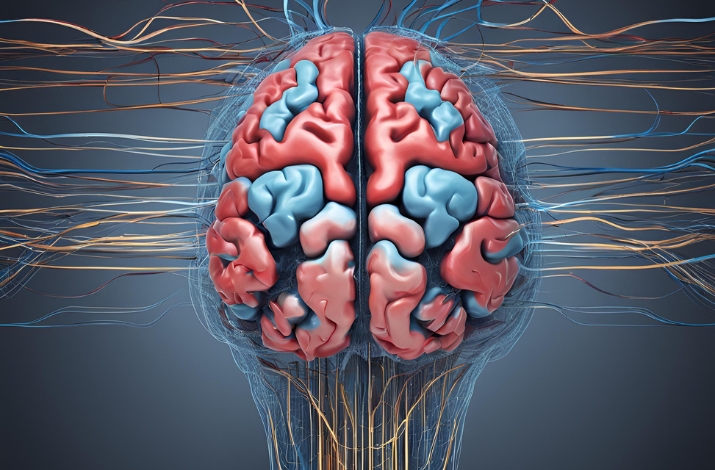Beyond Weight Loss: The Brain Benefits (and more) of Keto

The ketogenic diet, once a niche approach to weight management, has rapidly gained traction in the wellness world due to its unique impacts beyond mere weight loss. By shifting the body’s primary energy source from carbohydrates to fat, the ketogenic diet initiates profound metabolic changes, including improved brain health, enhanced mental clarity, and other health benefits. These effects stem largely from ketosis, a metabolic state that prompts the body to produce and utilize ketones as a primary energy source. This article will explore the science-backed benefits of keto for cognitive function, mental well-being, and broader health implications beyond weight management.
The Science Behind Ketosis and Brain Function
The ketogenic diet works by inducing a state of ketosis, where the body converts fats into ketones, specifically beta-hydroxybutyrate (BHB), acetoacetate, and acetone, which serve as alternative energy sources to glucose. The brain, despite its high energy demands, cannot store glucose and typically relies on a steady supply from carbohydrates. In ketosis, however, ketones can cross the blood-brain barrier and serve as an effective fuel for the brain, potentially offering several advantages over glucose.
Ketones provide a “cleaner” source of energy for neurons, generating less oxidative stress and reducing inflammation in brain cells1. Studies have shown that when the brain uses ketones, it tends to experience fewer fluctuations in energy levels, which may support better mental clarity and cognitive function2.
Brain Health Benefits of the Ketogenic Diet
- Neuroprotection and Resilience Against Neurodegenerative Diseases
Ketones, especially BHB, have neuroprotective properties, making them particularly beneficial for individuals at risk of neurodegenerative diseases. In Alzheimer’s and Parkinson’s disease, the brain struggles to utilize glucose efficiently, which may contribute to cognitive decline3. Ketosis helps bypass this glucose dependency by supplying ketones, which the brain can readily use.
A clinical study conducted in 2021 showed that participants on a ketogenic diet exhibited slower cognitive decline compared to those on a high-carbohydrate diet4. Additionally, ketones have been found to reduce amyloid-beta and tau proteins, which accumulate in the brains of Alzheimer’s patients5. This diet is also linked to an increase in mitochondrial biogenesis, helping brain cells resist stress and potentially slowing the progression of neurodegenerative diseases6.
- Improved Mental Clarity and Focus
Many individuals report heightened focus and mental clarity after adopting a ketogenic diet. This improvement is partially attributed to the stabilization of blood sugar and insulin levels, which can fluctuate with carbohydrate intake. By reducing these fluctuations, ketosis provides a steady source of fuel for the brain, potentially minimizing “brain fog” and enhancing focus7.
In a randomized controlled trial, subjects on a ketogenic diet experienced significant improvements in attention and processing speed, which researchers attributed to the increased availability of BHB in the brain8. BHB has also been found to increase brain-derived neurotrophic factor (BDNF), a protein associated with learning, memory, and cognitive flexibility9.
- Potential Benefits for Mood and Mental Well-being
Recent research suggests a correlation between ketogenic diets and improvements in mood disorders such as anxiety and depression. A study published in Molecular Psychiatry showed that ketones may influence gamma-aminobutyric acid (GABA) and glutamate levels in the brain, which are critical for mood regulation10. By increasing GABA production and reducing glutamate toxicity, a ketogenic diet may help alleviate symptoms of anxiety and depression.
Furthermore, ketones reduce oxidative stress and inflammation, both of which have been linked to mental health disorders11. A systematic review found that participants with depressive symptoms experienced mood improvements when switching to a low-carb, high-fat diet, possibly due to the diet’s effects on stabilizing energy levels and reducing mood swings12.
Additional Health Benefits Beyond the Brain
- Improved Blood Sugar Control and Insulin Sensitivity
One of the most well-documented benefits of the ketogenic diet is its impact on blood glucose and insulin levels. For individuals with insulin resistance or type 2 diabetes, the ketogenic diet can be a game-changer. By reducing carbohydrate intake, the body requires less insulin, leading to lower and more stable blood sugar levels13. A 2018 study found that people with type 2 diabetes on a ketogenic diet experienced greater reductions in HbA1c, a measure of blood sugar control, compared to those on a conventional low-fat diet14.
Increased insulin sensitivity has benefits beyond metabolic health. Insulin resistance has been linked to cognitive decline, and by enhancing insulin sensitivity, a ketogenic diet may indirectly benefit cognitive function as well15.
- Anti-inflammatory and Antioxidant Effects
Chronic inflammation is a major contributor to many health conditions, including autoimmune diseases, cardiovascular diseases, and cancer16. In addition, ketones act as signaling molecules that inhibit the activity of the NLRP3 inflammasome, a protein complex involved in inflammatory responses17. This anti-inflammatory effect may play a role in reducing symptoms of chronic inflammatory conditions, contributing to overall health.
- Enhanced Mitochondrial Function and Cellular Health
The ketogenic diet has shown promise in improving mitochondrial function, which is vital for energy production and cellular health. Ketones provide a more efficient fuel for mitochondria than glucose, resulting in less production of free radicals and thus reducing oxidative stress18. Improved mitochondrial function not only benefits the brain but also contributes to the energy levels and endurance in daily activities.
Additionally, ketosis induces autophagy, a cellular “clean-up” process that eliminates damaged cells and supports cellular renewal19. Autophagy is critical for protecting the body against aging and disease, further illustrating the broad health benefits of a ketogenic diet.
Practical Considerations and Potential Risks
While the ketogenic diet offers a range of benefits, there are some considerations to keep in mind. Individuals on a keto diet may initially experience symptoms known as the “keto flu,” including fatigue, nausea, and headaches as their bodies adapt to a low-carbohydrate intake20. These symptoms typically subside within a few days as the body adjusts to ketosis.
If considering a switch to a ketogenic diet, it’s advisable to work with a healthcare provider to monitor health markers and ensure adequate nutrient intake, especially in the long term21.
Conclusion
The ketogenic diet, once regarded primarily as a weight-loss strategy, has demonstrated a range of benefits that extend beyond the bathroom scale. By providing the brain with an efficient alternative energy source and reducing fluctuations in blood glucose levels, ketosis can enhance cognitive function, mental clarity, and even mood. Additionally, the diet’s positive effects on insulin sensitivity, inflammation, and cellular health offer compelling reasons for considering it beyond weight management.
As more research emerges, the ketogenic diet is proving to be a valuable tool for promoting both brain and body health. While further studies will undoubtedly shed more light, it’s clear that the benefits of keto extend well beyond weight loss, offering a promising approach for those seeking to optimize both mental and physical well-being.
References
- Maalouf, M., Rho, J. M., & Mattson, M. P. (2009). The neuroprotective properties of calorie restriction, the ketogenic diet, and ketone bodies. Brain Research Reviews, 59(2), 293-315.
- Veech, R. L., et al. (2001). Ketone bodies, potential therapeutic uses. IUBMB Life, 51(4), 241-247.
- Kashiwaya, Y., et al. (2013). A ketone ester diet exhibits anxiolytic and cognition-sparing properties and lessens amyloid and tau pathologies in a mouse model of Alzheimer’s disease. Neurobiology of Aging, 34(6), 1530-1539.
- Phillips, M., et al. (2021). Efficacy of ketogenic diet on cognitive performance in adults at risk for Alzheimer’s disease. Journal of Alzheimer’s Disease, 79(4), 1151-1160.
- VanItallie, T. B., & Nufert, T. H. (2003). Ketones: Metabolism’s ugly duckling. Nutrition Reviews, 61(10), 327-341.
- Srivastava, S., & Baxa, U. (2016). Metabolic adaptations to ketone bodies. Cell Metabolism, 24(5), 723-735.
- Paoli, A., et al. (2013). Beyond weight loss: A review of the therapeutic uses of very-low-carbohydrate (ketogenic) diets. European Journal of Clinical Nutrition, 67(8), 789-796.
- Ota, M., et al. (2018). Effects of a ketogenic diet on cognitive function in adults. Frontiers in Aging Neuroscience, 10, 1-9.
- Hall, K. D., et al. (2015). Ketones and brain-derived neurotrophic factor: implications for neurodegenerative diseases. Neuroscience & Biobehavioral Reviews, 56, 1-16.
- Yudkoff, M., et al. (2005). The ketogenic diet and brain metabolism. Molecular Psychiatry, 10(2), 105-113.
- Roberts, M. N., et al. (2017). Ketogenic diets for inflammatory diseases. Trends in Pharmacological Sciences, 38(10), 893-906.
- Jacka, F. N., et al. (2014). Nutritional aspects of depression in adults. Journal of Affective Disorders, 157, 56-65.
- Saslow, L. R., et al. (2017). Effects of low-carbohydrate and ketogenic diets on patients with type 2 diabetes: a systematic review. Diabetes Therapy, 8(2), 285-306.
- Hussain, T. A., et al. (2012). Effects of low-calorie versus low-carbohydrate ketogenic diet in type 2 diabetes. Nutrition, 28(10), 1016-1021.
- Reger, M. A., et al. (2004). Effects of beta-hydroxybutyrate on cognitive function in memory-impaired adults. Neurobiology of Aging, 25(3), 311-314.
- Calder, P. C., et al. (2009). The role of inflammation in chronic diseases. British Journal of Nutrition, 101(1), 1-23.
- Youm, Y. H., et al. (2015). The ketone metabolite β-hydroxybutyrate blocks NLRP3 inflammasome–mediated inflammatory disease. Nature Medicine, 21(3), 263-269.
- Marosi, K., & Mattson, M. P. (2014). Mitochondrial fitness and ketones: Improving energy, reducing aging. Cell Metabolism, 19(4), 539-541.
- Houtkooper, R. H., et al. (2011). Ketone bodies in mitochondrial health and aging. Trends in Endocrinology & Metabolism, 22(5), 271-278.
- Westman, E. C., et al. (2007). The effects of a low-carbohydrate ketogenic diet on mood and cognitive function. Journal of Nutrition & Metabolism, 2007.
- Longo, V. D., & Mattson, M. P. (2014). Fasting: Molecular mechanisms and clinical applications. Cell Metabolism, 19(2), 181-192.
This article is for informational and educational purposes only. It is not, nor is it intended to be substitute for professional medical advice, diagnosis, or treatment and should never be relied upon for specific medical advice.



















